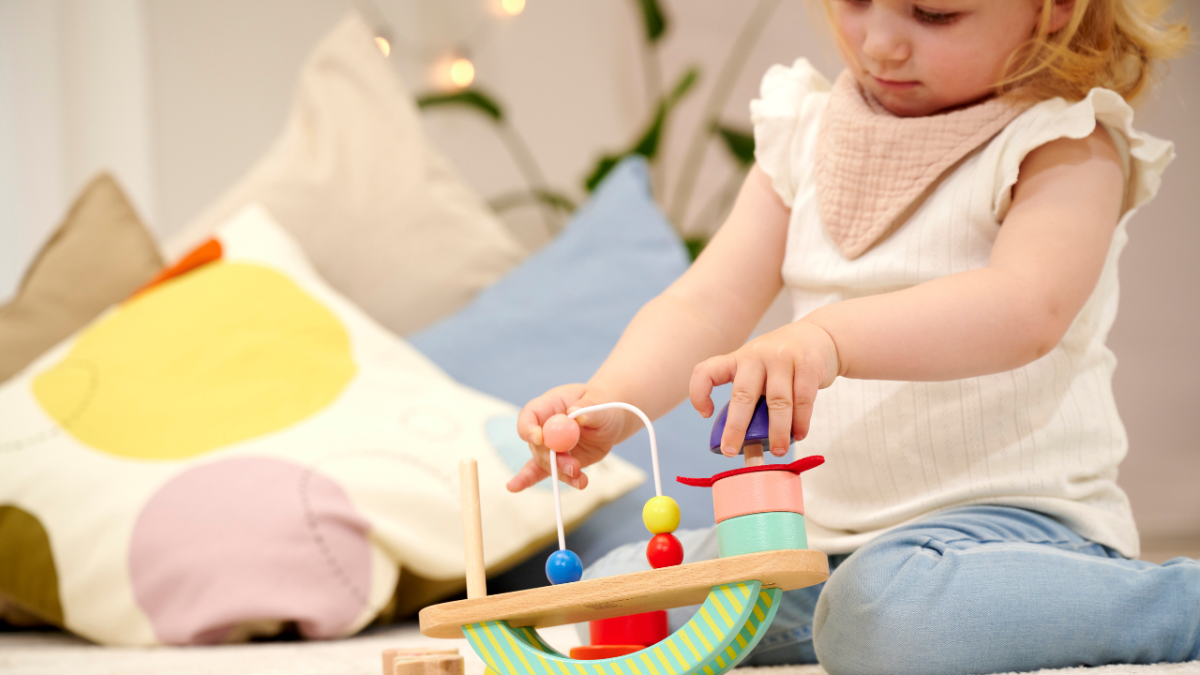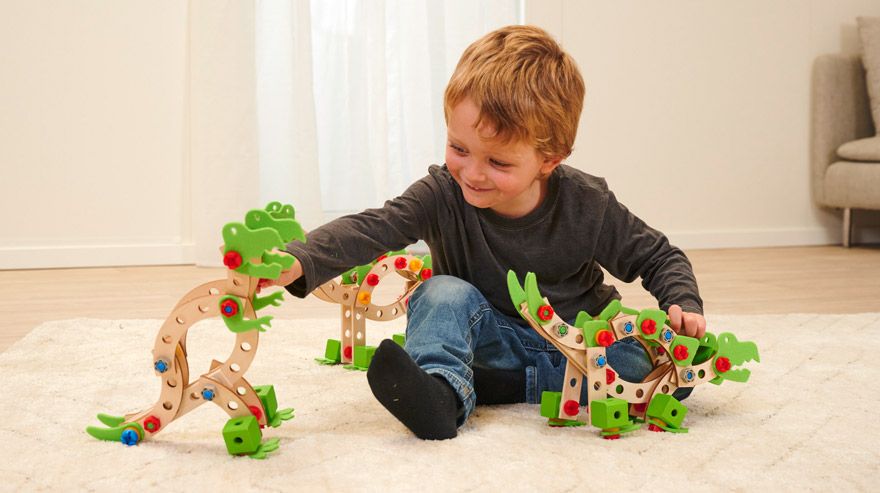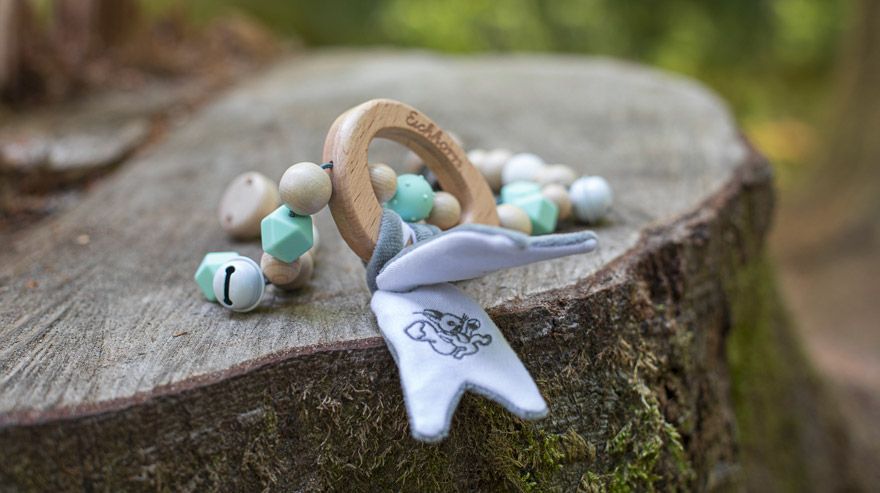Strengthen cognitive development
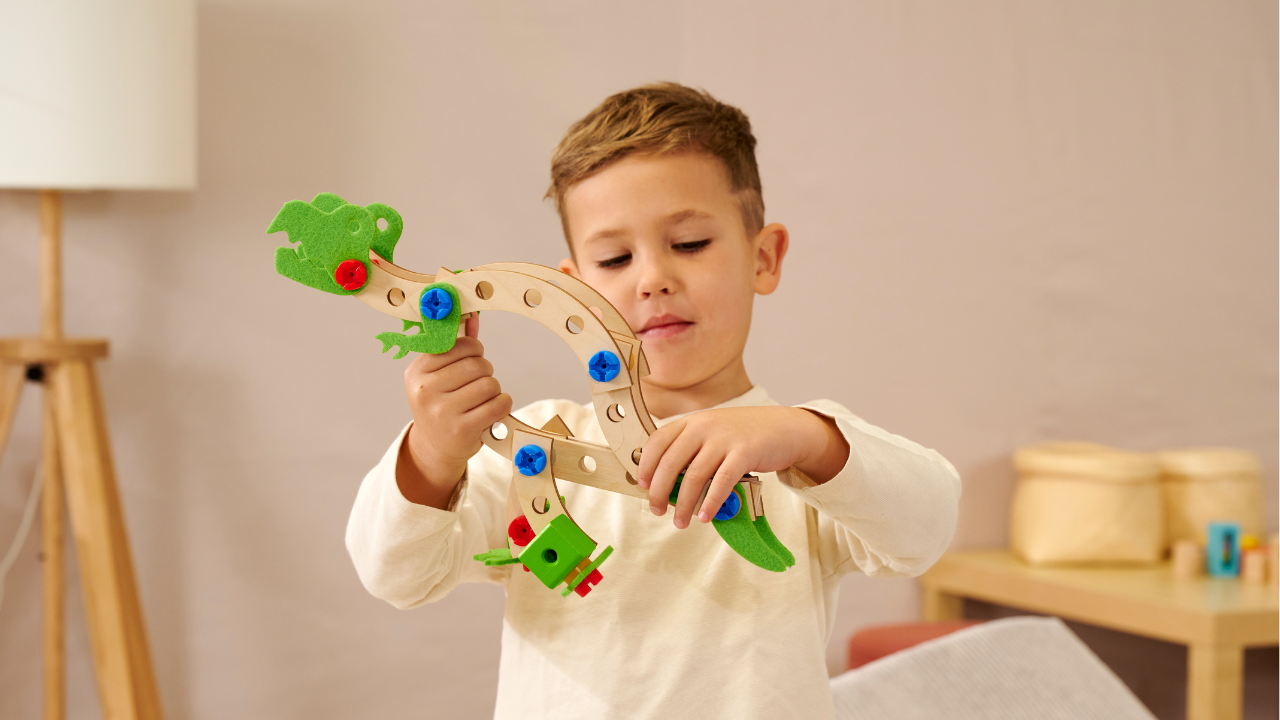
-
By
Melanie A.
Encouraging clever minds early: The impact of wooden toys on children's cognitive development
Babies are born with around 100 billion neurons that support basic, mostly reflex-driven survival skills. As children get older, the brain develops rapidly and cognitive development becomes an important topic.
This article takes an in-depth look at children's cognition, highlights the milestones in a child's cognitive development and introduces toys that you can use to provide your child with optimal support in this area.
Why are wooden toys particularly important for promoting children's cognitive development?
Toys can usefully accompany and support cognitive development. Logically, after all, playing is a natural behavior of every child. If you offer your child toys that appeal to them cognitively, their cognitive skills will develop effectively through play.
Wooden toys are particularly beneficial for children's cognition as they are sustainable, robust and harmless to health . Wooden toys have another advantage in terms of children's cognitive development: thanks to the special feel of the natural raw material wood, your child will gain valuable haptic experiences while playing. This is so exciting because cognition and perception are closely linked via the senses.
We at Eichhorn have therefore made a conscious decision to concentrate on producing top-quality wooden toys. In this way, we are able to provide children with toys that promote cognitive development in a sustainable and safe way.
What is cognitive development in children all about and how do they develop?
Cognitive development encompasses perception, thinking, learning and understanding. These skills enable us to understand the world, adapt and solve complex problems. Above all, cognitive abilities include:
- Logical thinking
- Problem solving
- Recognizing patterns
- Classification of sensory perceptions
- Imagination
- Creativity
- Orientation
- Planning
- Decision-making ability
- concentration
- Self-observation and self-reflection
- Reasoning
- Memory and recall
- Language comprehension
- Learning ability
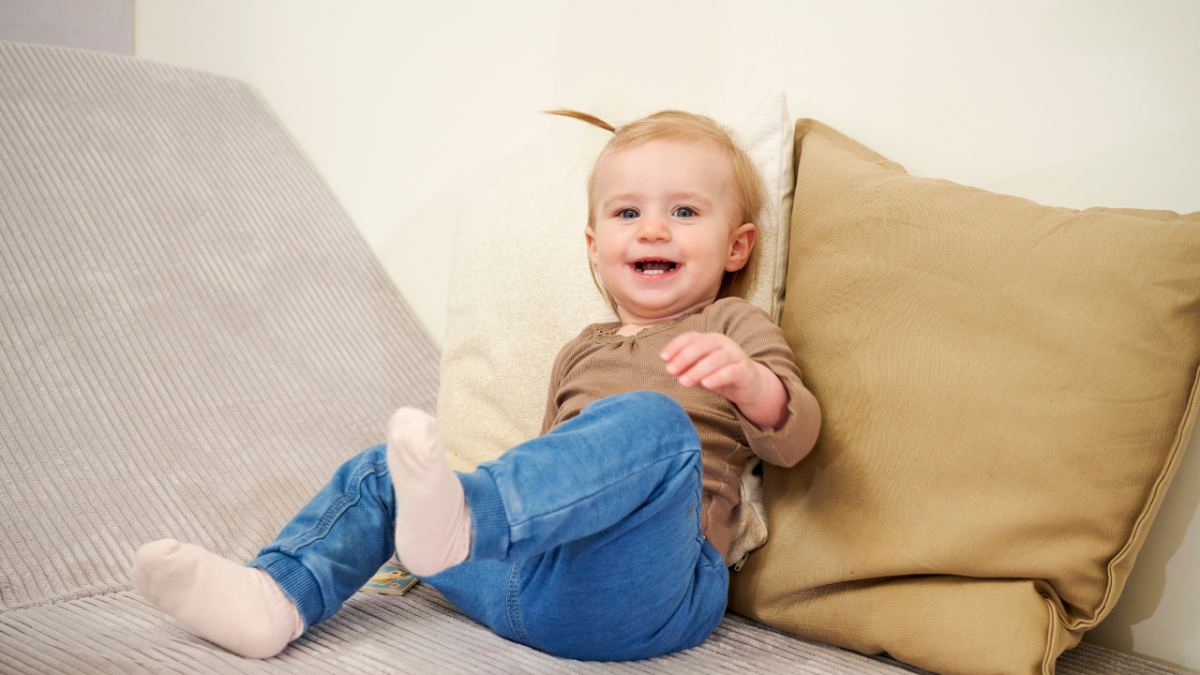
How exactly a child's cognitive development proceeds is very individual. Nevertheless, there are several approaches to describing the development of a child's cognition. One of these goes back to the Swiss scientist Jean Piaget. The pioneer in the field of cognitive developmental psychology divides the development process into four phases:
- Sensorimotor phase (0-2 years): development of sensory and motor skills
- Pre-operational phase (2-7 years): Recognition of symbols and development of imagination
- Concrete-operational phase (7-12 years): development of logical thinking and the ability to classify and sequence things
- Formal-operational phase (from 12 years) : development of hypothetical and abstract thinking
The following overview shows the development of children's cognition in detail and recommended Eichhorn wooden toys for each stage of development:
| Age group | Developmental stage | Suitable Eichhorn wooden toys |
| 0-1 year | Sensory and motor development | Grasping toys, rattles |
| 1-2 years | Early problem-solving skills, recognition of cause-and-effect relationships | Simple puzzles, stacking toys |
| 2-3 years | More complex problem-solving skills, imagination and fantasy | More complex puzzles, sorting games, simple role-play toys |
| 3-4 years | Spatial thinking, planning and creativity | Building blocks, simple construction sets |
| 4-5 years | Role play and social interaction, reasoning | Role-playing toys, small construction sets |
| 5-6 years | Fine motor skills and logical thinking | Marble runs, creative building sets |
| 6-7 years | Advanced construction skills | Advanced construction sets, logical games |
At this point, we would like to reiterate the individuality of a child's cognitive development.
Every child is an individual who develops at his or her own pace , which is why it makes little sense to compare children with one another. However, if there are clear deficits in the area of cognition, a discussion with the pediatrician may be useful.
Which wooden toys are suitable for which stages of development?
As a natural option and an absolute sensory highlight among toys, high-quality wooden toys are a childhood companion that combines playtime fun with the development of cognitive skills. We discuss in detail below which cognitive toys are suitable for children of which age:
Age 0-1 year: sensory and motor toys
Toys that support the cognitive development of children in their first year of life focus on sensory and motor skills. The design is tailored to the existing abilities of the youngest children and kept correspondingly simple. Teething rings and grasping toys are very popular, as you can find a colorful selection of them in our Eichhorn online store. These products encourage your child to test their motor skills and offer them various tactile stimuli. In addition, play arches & baby mobiles as well as motor skills loops are suitable for promoting your child's cognitive development in the first year of life.
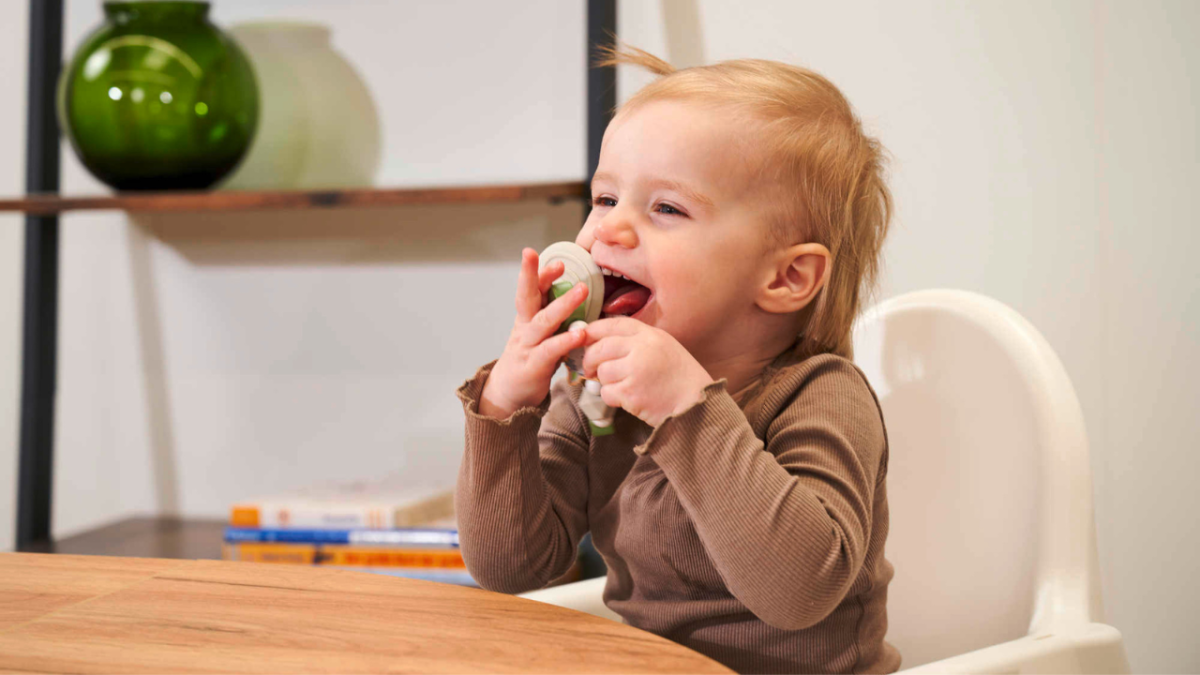
Ages 1-2 years: simple puzzles and stacking toys
Little explorers from the age of one can put their problem-solving skills and fine motor skills to the testwith age-appropriate wooden puzzles. Grasping and placing the large wooden pieces promotes motor skills and hand-eye coordination, while the principle of puzzling encourages children to think and recognize connections. In addition to large puzzles, you can offer your child simple games of skill towards the end of the second year of life, such as the farm stacking game with funny farm animals.
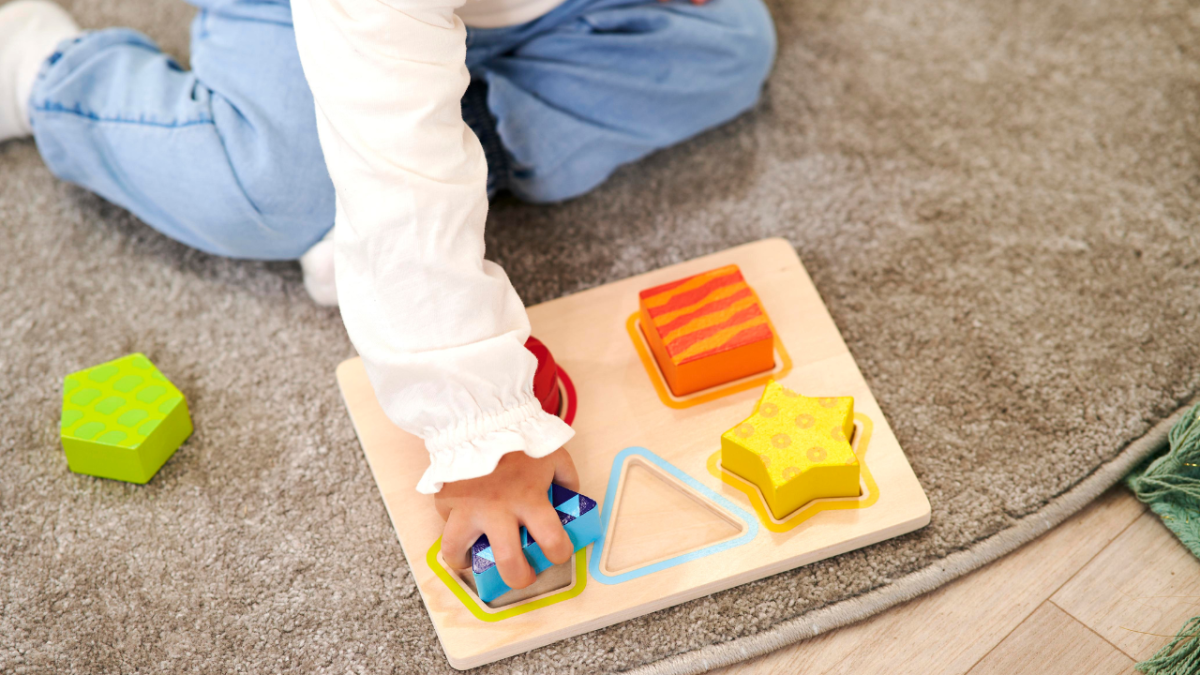
Age 2-3 years: more complex puzzles and sorting games
As cognitive skills increase, the toys can also become more sophisticated. Children between the ages of two and three enjoy slightly more complex games of skill that challenge their dexterity and attention. How about the 13-piece Eichhorn threading game, for example? The wooden toy with its cheerful design focuses on fine motor skills and invites children to have fun threading with animal motifs.
Age 3-4 years: Building blocks and simple construction sets
Three to four-year-old children are in the midst of developing spatial thinking, planning skills and creativity. These processes of cognitive development in children can be promoted excellently with wooden building blocks. By playing with the colorful building blocks, your child can use their imagination and translate buildings directly from their imagination into reality. Alternatively, wooden trains are a toy that supports the cognitive development of children in this age group. Building the tracks alone requires a certain amount of orientation in space - and then the fun is just beginning!
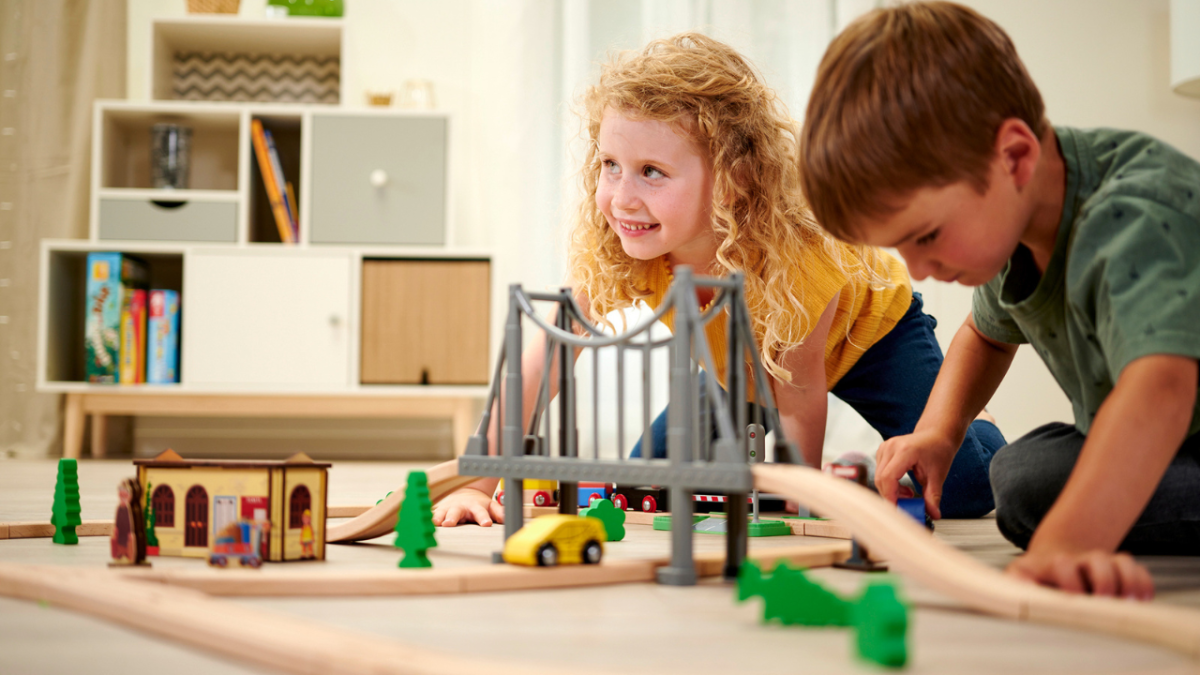
Ages 4-5: Role-playing games and small construction sets
From the age of four at the latest, social interaction becomes increasingly important for a child's cognitive development. Toys for cognitive development must take this component into account, as is the case with role-play toys, for example. With these special toys, your child can create a wide variety of play scenarios and slip into the role of the cashier at the supermarket, the teacher or the handyman, for example. Such games are ideal for playing together with parents, siblings or friends so that the interpersonal aspect is not neglected. The same applies to doll's houses, which allow children to play out creative and everyday scenarios together.
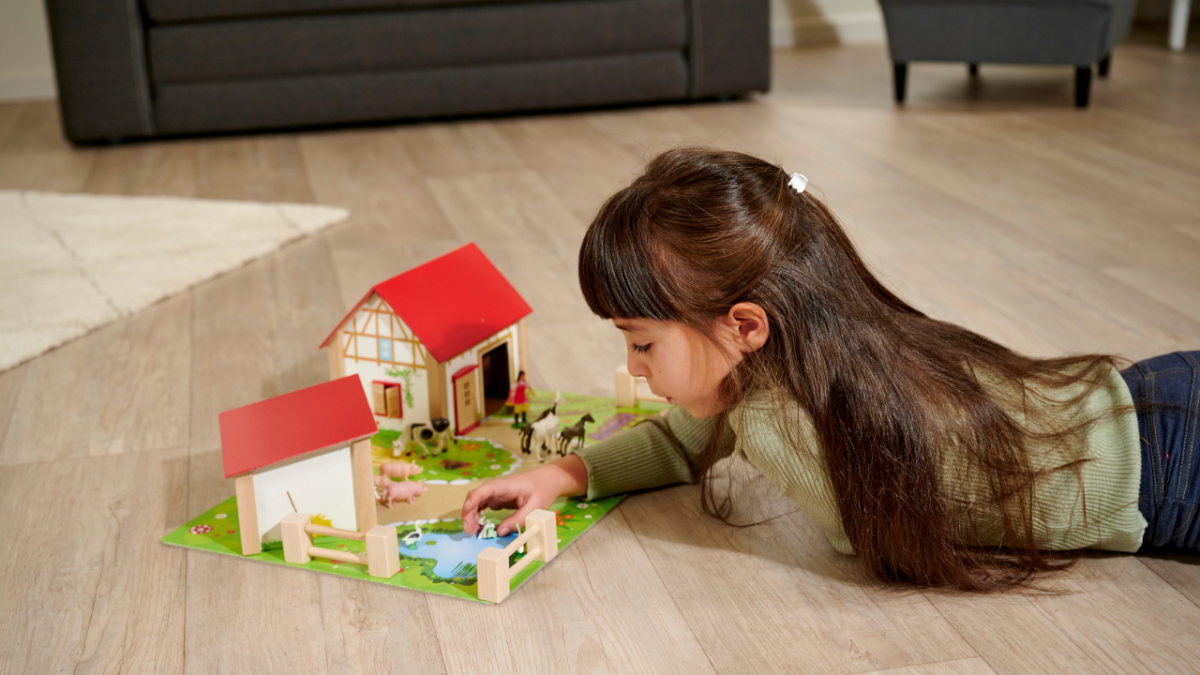
In addition to role-playing games, building sets are also an option for children in this age group. After all, four to five-year-olds already have some basic skills in the areas of problem solving, fine motor skills and logical thinking. This enables them to transform challenging building sets, such as the Eichhorn Constructor racing car set, into impressive figures, vehicles and other structures.
Ages 5-6: Creative building sets
At the age of five to six, fine motor skills reach a new level and logical thinking increasingly expands.
Cognitive toys that encourage children to observe, comprehend and understand more complex facts and at the same time set motor tasks are now ideal. This applies to our wooden building sets in full.
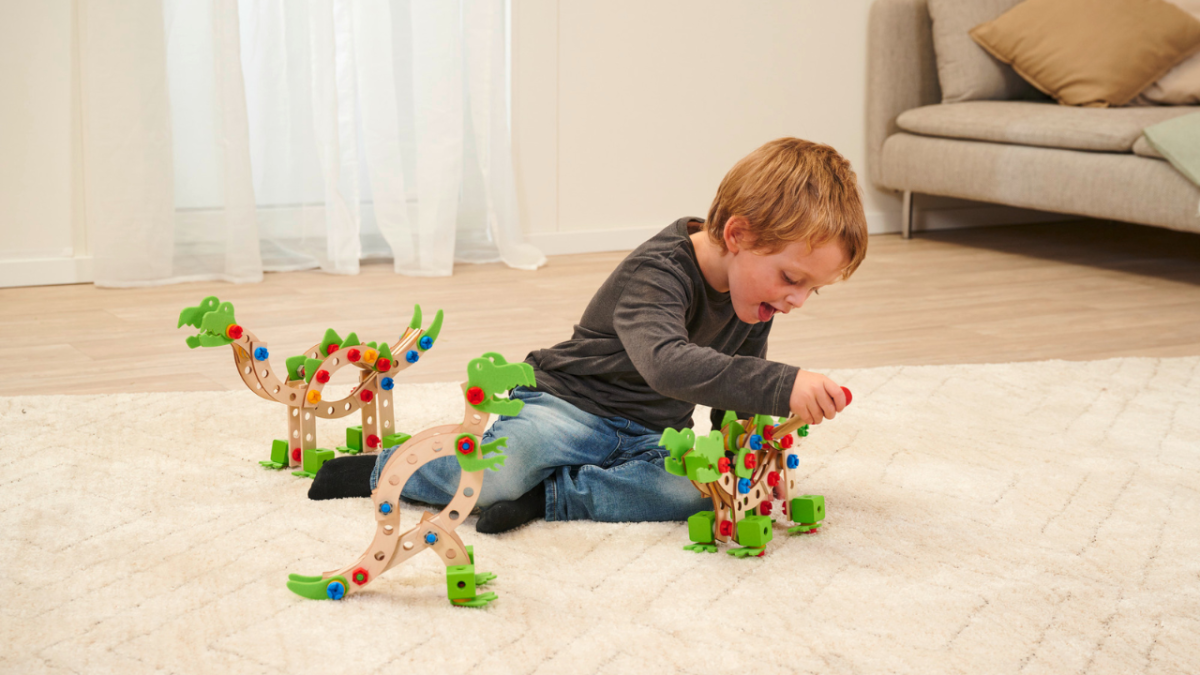
Ages 6-7: extended construction sets and logical games
Six to seven-year-old children are already quite advanced cognitively and can therefore venture into increasingly complicated toys. You can continue to support the cognitive development of children aged six and over with age-appropriate construction toys and logic games.
Products for children in this age group may well contain smaller components that require a strong sense of dexterity to handle.
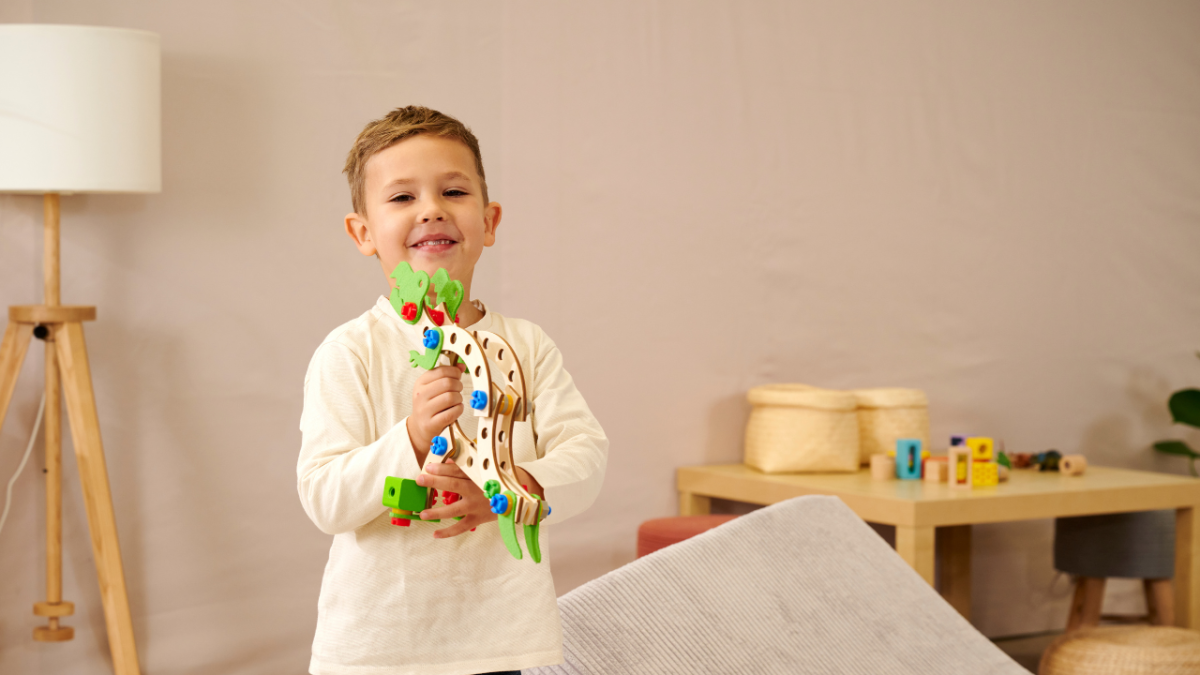
How can you as a parent support cognitive development?
As a parent, you can directly support and influence your child's cognitive development in order to optimally promote their progress. Because we know: A child's cognitive development also depends on their environment and the experiences they have.
Parental support
In everyday life, you have many opportunities to support your child's cognitive development. This starts as early as infancy: even if your baby cannot yet understand your language, it helps to develop their cognition if you talk to them a lot, read to them or play with them. From toddler age at the latest, communication with the caregiver becomes a central element in the child's cognitive development. Be communicative, encourage your child to interact socially and make time for games and conversations together.
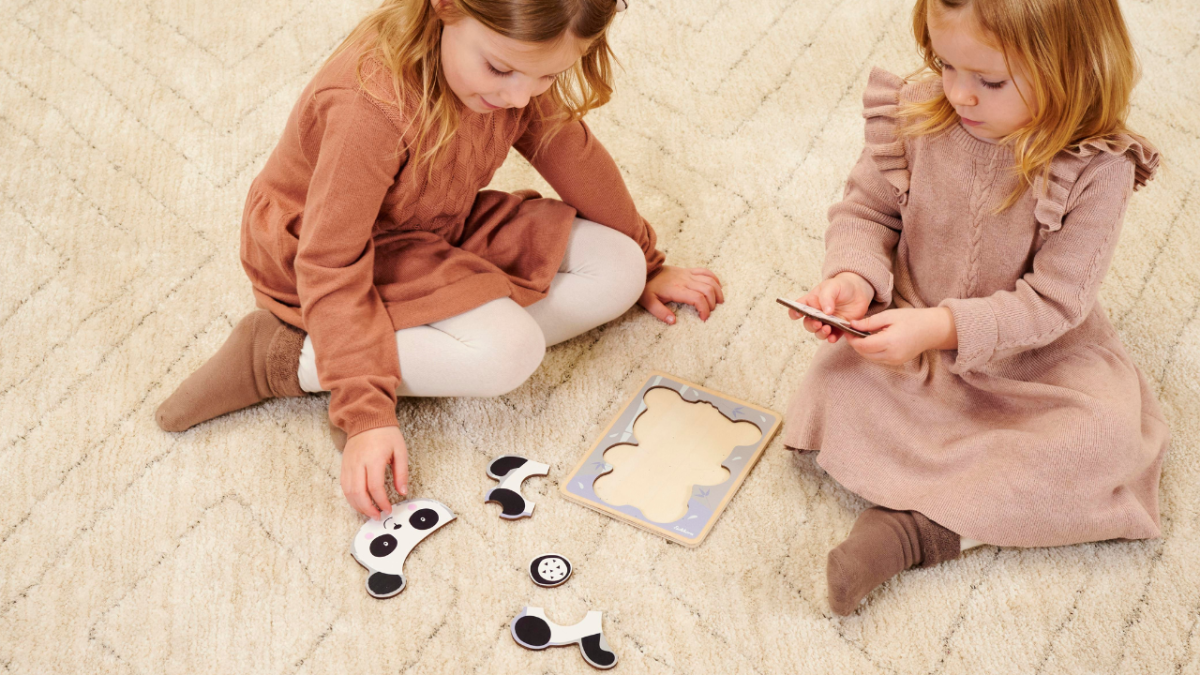
When it comes to toys that promote cognitive development, it is important to offer the right product at the right time. Observe which skills your child already has and which are currently developing and select suitable toys based on this. When it comes to choosing toys, the following also applies: less is usually more. Don't overwhelm your child with all sorts of toys, instead opt for carefully selected products in small quantities. The reason? Quite simple: If there are too many toys, it makes it harder for your child to really get involved in playing with a product and concentrate on it over a longer period of time. You can therefore also support your child's cognitive development by creating a calm, orderly play environment with carefully selected, stimulating toys.
In addition, as a companion through the cognitive development process, you should not skimp on praise and recognition. Praise your child with genuine enthusiasm for progress and milestones achieved, but also for their efforts when they have tried hard but have not yet succeeded. This will encourage them to keep going, keep at it and try things out.
In all of this, you should never forget that it is completely normal for other children to be a little more advanced than your own child in a certain area of cognition. Trust that your child's natural curiosity, coupled with your support, will ensure that they reach the next great milestones at their own pace - no need to rush!
What should you look out for when buying wooden toys?
Finally, we would like to draw your attention to a few criteria and features that you should look out for when buying cognitively stimulating wooden toys:
Sustainability & freedom from harmful substances
As a renewable raw material, wood is a sustainable choice that benefits the environment. In addition, high-quality products do not contain any harmful substances that could affect your child's health. When you choose a product from us, you can be 100% sure that you are buying a sustainable and pollutant-free toy.
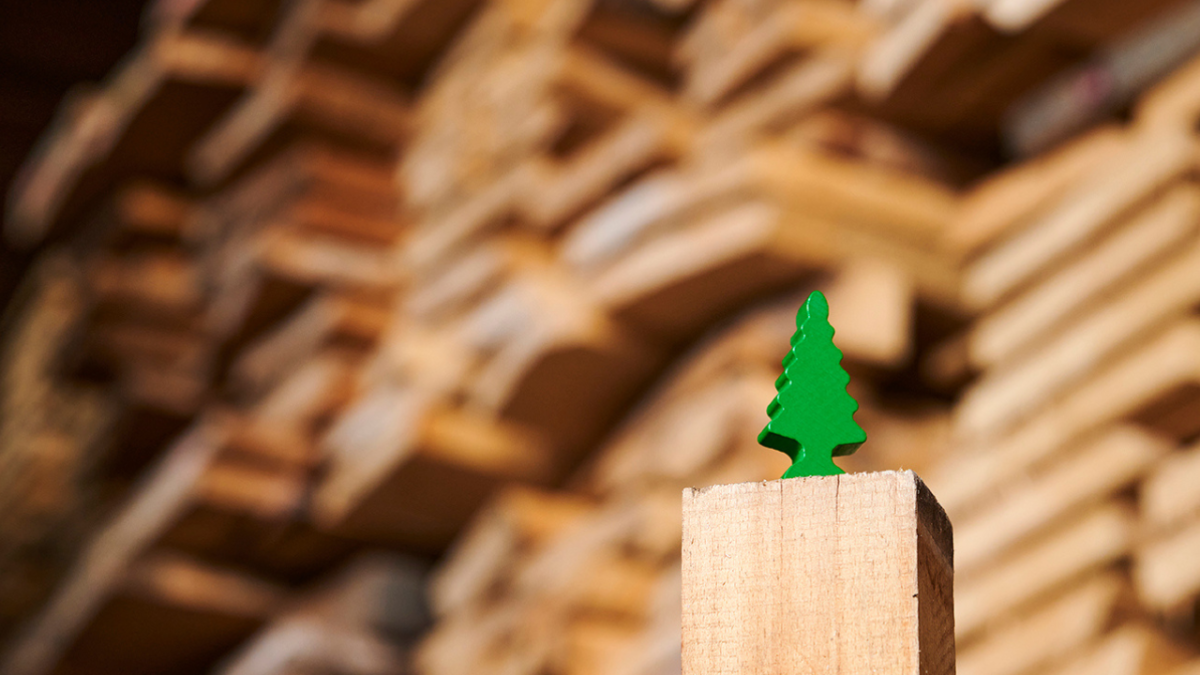
Quality of workmanship
Choose a well-made product that has no sharp corners or edges that could potentially injure your child. High-quality workmanship makes the toy durable and robust so that it will last your child a long time.
Safety & certificates
Which brings us directly to the big issue of safety. Good children's toys must be safe to use . At Eichhorn, we have our toys regularly tested by independent institutes, adhere to all applicable safety standards and produce the majority of our products in Germany. In this way, we can ensure a high level of product safety.
Age recommendation
Make sure you choose a product that is suitable for your child's age. You can use the manufacturer's age recommendation as a practical guide.
Price-performance ratio
Finally, the price must of course be right. High-quality wooden toys with a high play value are often a little more expensive than inferior plastic toys, but they are durable, natural and stimulating. This results in a fair price-performance ratio, especially as the toys can withstand years of play.
Eichhorn: exciting and development-promoting wooden toys for your child
Logical thinking, the ability to plan, imagination, concentration and problem solving: these are just some of the many skills that belong to the broad field of cognition. It therefore goes without saying that cognitive development in children is an essential process. There are plenty of small hurdles to overcome and milestones to celebrate along the way. High-quality wooden toys, such as those you can discover in our Eichhorn store, are ideal for promoting your child's cognitive development. The well-designed, natural toys impress with their durability, feel and play value - making it easy to promote cognitive skills!
